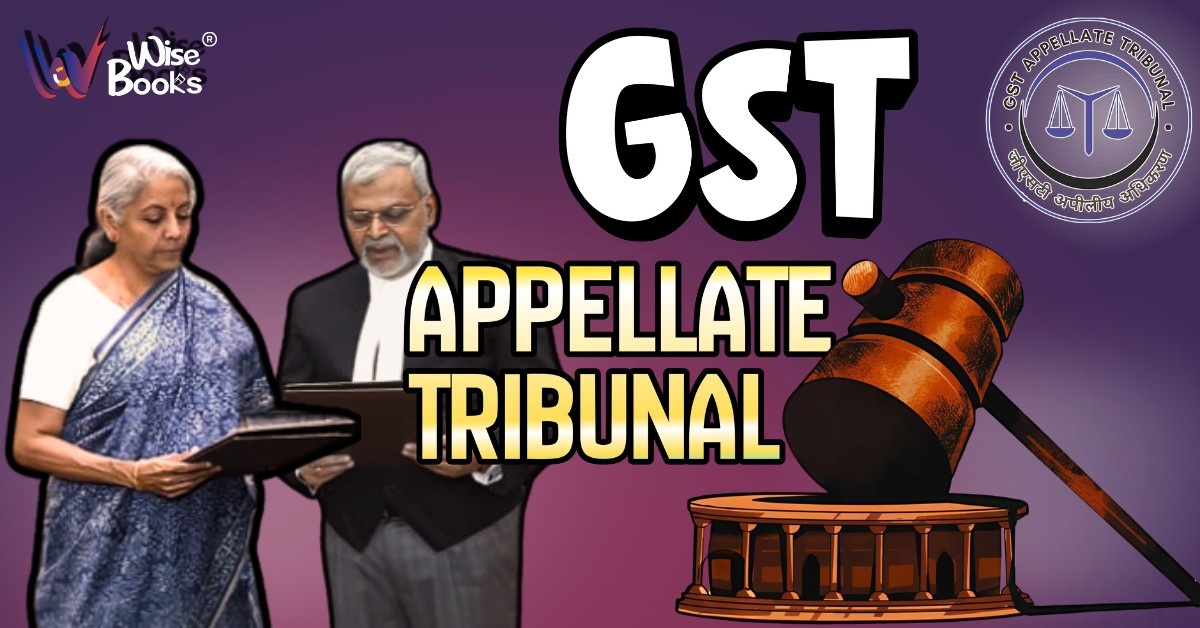The long-awaited Goods and Services Tax Appellate Tribunal (GSTAT) has been formally notified in 2025. This marks a turning point in India’s indirect tax dispute resolution system. For several years, businesses had no dedicated tribunal for GST appeals, and many cases had to be taken directly to the High Courts.
With the GSTAT becoming functional, taxpayers now have a specialised forum to challenge and appeal orders. But the crucial question is: Which GST cases can be referred to GSTAT?
What Is GSTAT & Why It Matters
Under GST law, appeals follow a multi-tier system:
-
First Appeal → to the Appellate Authority under Section 107 of the CGST Act.
-
Second Appeal → to the GST Appellate Tribunal (GSTAT).
-
Further Appeals → High Court and Supreme Court, depending on the matter.
Until now, the absence of a functioning GSTAT has created delays, confusion, and heavy dependence on High Courts. With GSTAT benches notified and rules in place, the appellate system under GST is now complete.
Key Highlights of GSTAT Rules, 2025
-
Digital Filing: Appeals must be filed electronically through the GSTAT portal.
-
Tribunal Structure: A Principal Bench at New Delhi, supported by multiple State Benches.
-
Mandatory Pre-Deposit: A fixed percentage of the disputed tax must be paid before appeal is admitted.
-
Hearing Procedures: Provisions for interlocutory applications, condonation of delay, and stay requests.
-
Power of Tribunal: GSTAT can summon persons, demand documents, rectify errors, and issue binding orders.
-
Legacy Cases: Special provisions have been made for pending appeals from earlier years, with an extended filing window.
Which GST Cases Can Be Referred to GSTAT?
Eligible Cases
-
-
Appeals against orders passed by the First Appellate Authority (FAA) under Section 107.
-
Appeals against revisional orders passed by the Commissioner under Section 108.
-
Disputes relating to tax, interest, penalty, or refund decided by lower appellate authorities.
-
Excluded Cases
-
-
Constitutional challenges or writ matters (these remain under High Courts).
-
Matters already finally decided by High Courts or Supreme Court.
-
Appeals where pre-deposit requirement is not fulfilled.
-
Legacy Cases
-
-
Appeals pending due to the absence of GSTAT can now be filed.
-
A special transition window has been given so that taxpayers with old disputes can approach GSTAT without being barred by limitation.
-
Procedure for Filing an Appeal to GSTAT
-
-
Verify Eligibility → Ensure the order appealed against is from the FAA or the Commissioner (Revisional).
-
Prepare Grounds of Appeal → Draft facts, legal arguments, and relief sought.
-
Pay Pre-Deposit → Deposit the prescribed percentage of disputed tax + admitted tax.
-
File Online → Submit appeal forms on the GSTAT portal with supporting documents.
-
Hearing & Evidence → Attend hearings (physical/virtual) and present case.
-
Final Order → Tribunal issues an order, which can be further appealed to the High Court or Supreme Court on questions of law.
-
Benefits of GSTAT for Businesses
-
Dedicated Forum: A specialized body ensures uniform interpretation of GST law.
-
Faster Resolution: Reduced dependence on overburdened High Courts.
-
State-Level Access: Multiple benches increase accessibility for businesses.
-
Transparency: Digital portal for filing and tracking appeals improves accountability.
Challenges Ahead
-
Initial Backlog: A large number of pending cases may cause delays in the first few years.
-
Strict Compliance: Procedural lapses (like missing documents or pre-deposit defaults) may lead to dismissal.
-
Learning Curve: Businesses and professionals need to quickly adapt to new filing processes and rules.
Practical Tips for Businesses
-
Review Past Disputes: Check which pending cases can now be moved to GSTAT.
-
Track Deadlines: Don’t miss the extended timelines for legacy appeals.
-
Document Management: Keep all orders, challans, and correspondence ready before filing.
-
Seek Expert Support: Professional representation ensures proper drafting and compliance with technical rules.
FAQs
1. What is GSTAT?
It is the statutory appellate tribunal for GST disputes, created under the CGST Act to hear second appeals.
2. When will GSTAT start hearing cases?
Benches have been notified and are expected to start functioning from late 2025.
3. Which orders can be appealed before GSTAT?
Orders passed by the First Appellate Authority or by Commissioners in revision can be appealed.
4. Is pre-deposit mandatory?
Yes, appeals cannot be admitted without payment of the prescribed pre-deposit.
5. What about cases already pending in High Courts?
High Courts may transfer certain GST matters to GSTAT, depending on jurisdiction and stage.
Conclusion
The notification of GSTAT in 2025 brings much-needed clarity and relief to taxpayers struggling with GST disputes. With specialised benches and a structured appellate mechanism, businesses can now expect faster and more consistent resolution of their tax appeals.
However, compliance with filing procedures, timelines, and pre-deposit requirements will be critical. Businesses should start reviewing their pending disputes now and prepare to approach GSTAT with complete documentation and professional guidance.
📌 WiseBooks can assist in reviewing orders, preparing appeal documents, and ensuring smooth representation before GSTAT.



Comments
No comments yet. Be the first to comment!